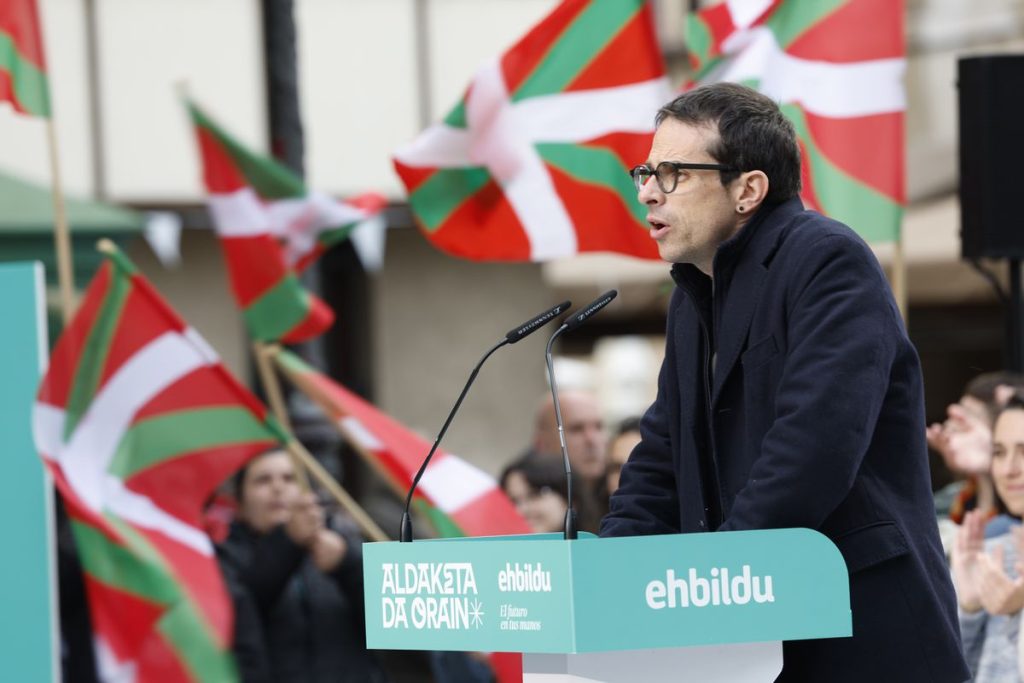The EH Bildu candidate for lehendakari, Pello Otxandiano, has apologized if his refusal to call ETA a terrorist organization may have “hurt the feelings of the victims.” Otxandiano avoided condemning ETA’s terrorist past and referred to it as an “armed group” in an interview on SER last Monday. This Thursday, on Radio Euskadi, he stated: “If with those words I may have hurt the feelings of ETA victims, I apologize.” He emphasized that the Basque left is “making progress,” but admitted that it is probably still “insufficient.” Otxandiano mentioned that EH Bildu is committed to addressing the past, taking steps discreetly outside of the spotlight and electoral context.
In October 2021, the general coordinator of EH Bildu, Arnaldo Otegi, and the general secretary of Sortu, Arkaitz Rodríguez, made a special mention of the “victims of ETA violence” in what is known as the Declaration of October 18. They expressed their regret to the victims of the terrorist group, stating that “no one should take satisfaction in what happened” and committed to “mitigating” the pain caused by ETA to victims. Despite criticism from victim groups and other political parties, Otxandiano reiterated his “absolute respect” and “closeness” to the pain of all victims, particularly those of ETA. He emphasized EH Bildu’s efforts towards reconciliation, building a plural memory, and respecting and repairing the harm caused to all victims without exception.
Otxandiano acknowledged that the steps taken by his party to acknowledge the damage caused by ETA may be insufficient, but he believes it is crucial to take these incremental steps towards progress. He highlighted the need for a multilateral process and expressed his commitment to carrying out this process if elected lehendakari. Referring to Sortu, the successor of Batasuna and part of EH Bildu, Otxandiano recognized its past involvement in causing pain but emphasized that the party is now positioned to promote reconciliation, as shown by the inclusion of individuals who were formerly threatened by ETA on his electoral lists.
The candidate’s statements have sparked debate and criticism from victim groups and political opponents over EH Bildu’s stance on ETA’s past history of violence. Otxandiano’s reluctance to explicitly condemn ETA as a terrorist organization and his use of the term “armed group” have led to calls for clearer denunciations of terrorism. Despite these challenges, Otxandiano reaffirmed his party’s commitment to reconciliation and building a plural memory of the past, emphasizing the importance of respecting, repairing, and recognizing the harm caused to all victims, regardless of their background. EH Bildu’s efforts towards reconciliation and acknowledging the pain inflicted by ETA continue to be a key focus of their political agenda.
As the Basque Country navigates its complex history of violence and conflict, the process of reconciliation and memory-building remains a delicate and ongoing task. EH Bildu’s approach to addressing the legacy of ETA and promoting reconciliation has sparked both support and criticism from various sectors of society. Otxandiano’s apology for any offense caused by his remarks and his party’s commitment to further steps towards acknowledging and repairing the damage caused by ETA reflect the challenges and complexities of dealing with a traumatic past. The path towards reconciliation and healing in the Basque Country requires continued dialogue, reflection, and a concerted effort to address the wounds inflicted by decades of violence.















